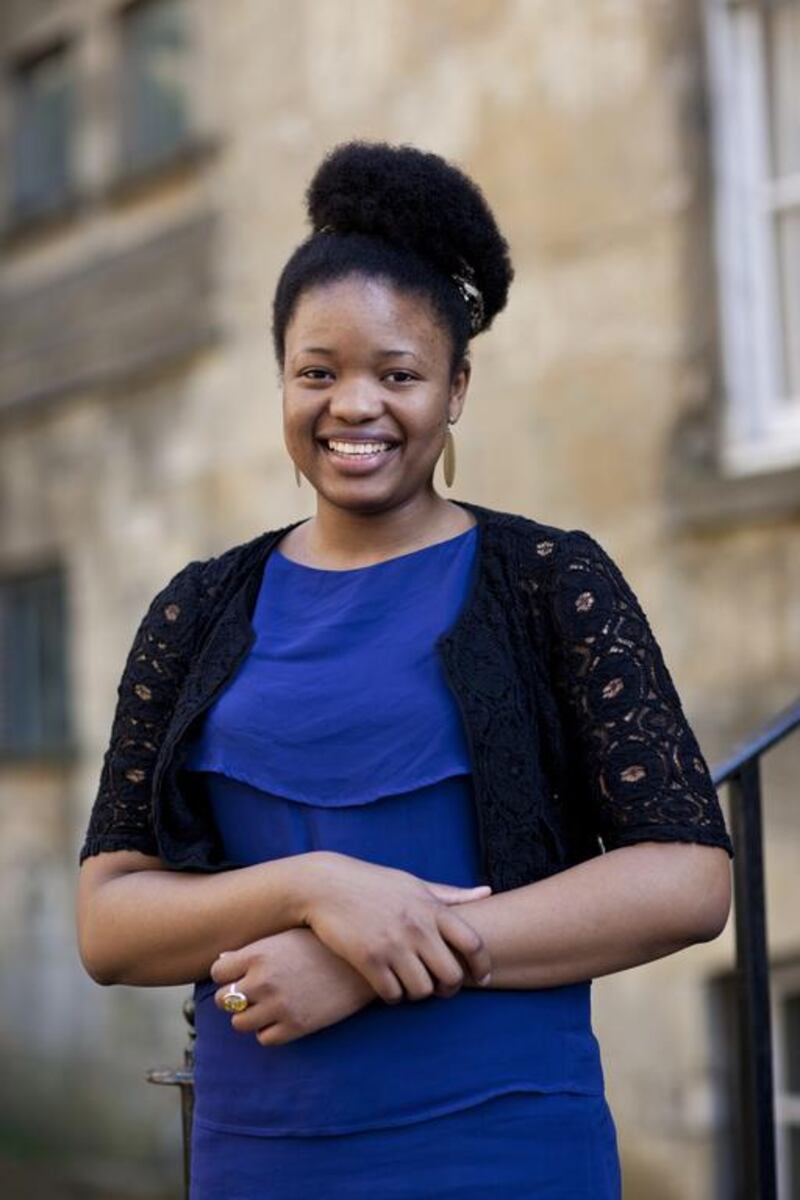The fallout from a much-hyped debut is never easy to handle, particularly when the author in question published her first book at 21. For Chibundu Onuzo, though, following up 2012's Commonwealth Book Prize-shortlisted The Spider King's Daughter came easy.
“I dreamt of two soldiers in the Niger Delta and there was some sort of gun battle,” she recalls. “It was very vivid, so when I woke up I wrote it down – I never write my dreams down.”
Obviously, Onuzo is keen to point out that the journey to Welcome to Lagos, published last week, was slightly trickier than those auspicious beginnings might suggest. But her first two characters were right in front of her. And while soldiers, Chike and Yemi, are the initial focus, when they desert a cruel army and head to Lagos to hide, the story quickly broadens.
Along the way we meet characters who are all running away in some form – from penniless militants right the way through to a domestic-abuse victim, a newspaper editor and a crooked government minister accused of stealing millions of dollars.
Onuzo says she was reading Sea of Poppies by Amitav Ghosh at the time – "that book is really cool" – and wanted to try something with a similar ensemble cast.
“Little did I know how hard it would be,” she laughs. “It took quite a while to work out how many characters I should have – there were 20 at some point and I couldn’t manage them all. So I whittled it down into this book where Chike and Yemi could pick up different people and have adventures.” Of course, Lagos is a character, too. There is a telling line in the book where the Nigerian city is described as “armed robbers, ritual killings, drug dealers. It’s like that and it’s not like that”. It seems to sum up both the book and Onuzo’s feelings towards the character of a unique city.
“There are so many entrance and exit points to Lagos,” she says. “You can go there and see dysfunction and chaos, or you can see opportunity. Someone coming from the West sees a failed state, whereas someone from a rural part of Nigeria will go ‘wow’. So I wanted to catch that idea of Lagos taking different forms depending on what baggage you’re carrying.”
Baggage, both literal and metaphorical, of course. But the novel’s success is that it is not a story about Lagos, so much as about the world in the 21st century. There are also sections set in London. Readers based in any modern city will find much to enjoy in the idea of a place where the powerless and the powerful, the rich and poor, even Muslims and Christians, can overlap and collide, but also collude time and time again.
“Lagos is a magnet not just for Nigeria but West Africa as a whole,” she says. “There are ethnic clashes, but most of the time I think people just get on with the business of living there. A camaraderie emerges from the bustle.
“But it’s a difficult place to romanticise. I’ve lived in London for 11 years now, and I certainly don’t view Lagos through rose-tinted spectacles and I love the energy of the place. It makes you feel alive.
“Having said all that, context is of course important, but I really do hope people do see this as an adventure story of sorts.”
Certainly, Welcome to Lagos reveals a talent that hasn't been dimmed by the success of her debut, even though she says the hype at the time was often overwhelming. Now, with two books behind her, there's a definite feeling of assurance and quiet confidence – she says she can now understand Lagos with "more writerly eyes".
Not that this unassuming young author would ever be so bold to suggest she’s cracked this writing lark.
"It's just practice, isn't it?" she says. "You just learn to run on, and on, and on. I mean, Welcome to Lagos is nice, but for me it's like: 'Bye now. I'm on to writing the next one'."
• Welcome to Lagos is out now
artslife@thenational.ae





